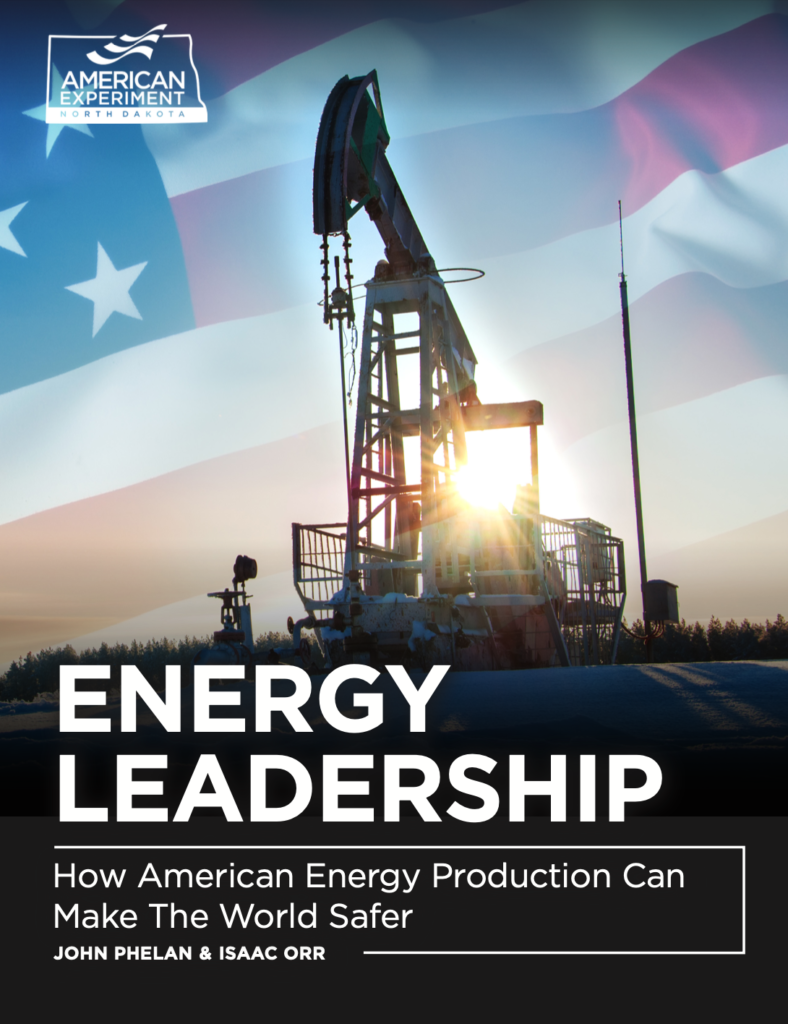Energy Leadership
How American Energy Production Can Make The World Safer
On February 24, Russia invaded the Ukraine. This unjustifiable act of aggression drew widespread condemnation from the international community. In an emergency session on March 2, 141 of the United Nations’ 193 member states voted to condemn the invasion, with 35 abstaining and just five voting against the resolution.
Even so, when it came to coordinating an effective response, many countries found their hands tied by their reliance on energy imported from Russia. Russia supplies about one-third of the natural gas consumed in Europe where it is used for everything from winter heating to electricity generation and industrial production. The European Union also relies on Russia for more than one-quarter of its crude oil imports, making it the bloc’s largest single energy source. Some countries are especially dependent. Germany, Europe’s largest economy, gets more than half of its natural gas and more than 30 percent of its crude oil supplies from Russia. So, as late as March 7, eleven days into the war, Germany’s Chancellor, Olaf Scholz, suggested that Germany would not support energy sanctions on Russia, explaining that Russian energy imports are of “essential importance” to daily life there.

There is little doubt that Vladimir Putin’s regime has deliberately sought to use its energy exports for strategic leverage. A substantial amount of evidence strongly suggests that the Russian government provided covert funding for the anti-fracking movement in the United States and Europe, “to maintain dependence on imported Russian gas,” according to former NATO Secretary General Anders Fogh Rasmussen. In 2016, former Secretary of State Hillary Clinton reported: “We were even up against phony environmental groups, and I’m a big environmentalist, but these were funded by the Russians…” The environmental movement in the West have not been ‘useful idiots’ for Putin’s regime, they have been indispensable idiots.
But this source of strategic strength for Russia is also a potential source of great weakness. Exports are the price a country pays for its imports and Russia’s energy exports pay for a range of imports which are vital to the country’s economy. If the revenue from Russia’s energy exports can be reduced by reducing the global price of energy significantly, then not only will the world benefit from a positive shock on the supply side of the economy, but the ability of Putin’s regime to finance its wars of conquest in the Ukraine and elsewhere will be severely curtailed.
This crisis has brought policymakers in a number of countries to the belated realization that depending on a regime like that of Vladimir Putin for essential energy supplies is a bad idea. Italy is considering reviving its coal plants and so, too, is Germany. The United Kingdom is mulling the return of fracking.
This paper goes beyond that, however. We do not set out a plan for American energy independence with the aim of insulating the United States from the kind of leverage being exerted on policymakers like Olaf Scholz. Rather, we make the case for a bolder strategy: using the ability of the United States to produce cheap energy in abundance to lower global energy prices and pry a key source of strategic leverage from the hands of Vladimir Putin.
First, we outline the vulnerability of the Russian economy to such a strategy. Second, we explain why a shift to ‘renewables’ in the United States will not be anywhere near sufficient to execute this strategy, at least in a useful timeframe — indeed, such moves are the source of many of the woes currently facing countries like Germany. Finally, we outline a plan that actually will provide cheap, clean energy in abundance.
If we must oppose Putin’s expansionism, it is vastly better to do so with cheap energy than with other methods.
Click the “Download PDF” button to read the rest of the report.